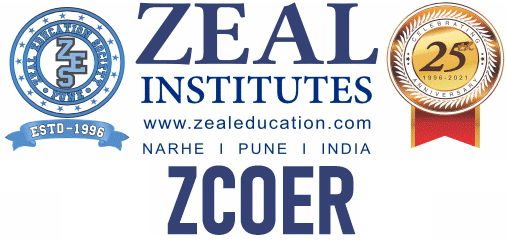NVIDIA Corporation, USA has recently designated ZES’s ZCOER, Pune as a GPU Education Center (GEC). CUDA Center of Excellence (CCOE) of IIT Bombay and NVIDIA Corporation are jointly conducting the workshop on GPU Programming and Applications during 28th -30th December 2015 at ZCOER, Pune.
This three days workshop on heterogeneous parallel computing and aimed at enriching the skills of students, faculty and researchers with cutting-edge techniques and hands-on experience in developing applications for many-core processors, with massively parallel computing resources like GPU accelerators.
It was 3 day event and the event began with the arrival of chief guests were- Mr. Manish Bali Director- Higher Education & Research Lead-University Relations, Asia South and Mr. Mandar Gurav, Research Scholar, CUDA Center Of Excellence, IIT Bombay.
Workshop Objectives
- Introduce techniques available based on NVIDIA’s CUDA environment.
- Enable participants to quickly get started with writing their own parallel codes on GPGPU.
- Provide hands-on experience in parallel programming.
- A brief introduction to the programming assignments, followed by independent work periods.
- Present case studies from different application domains
Logical Development
The department of computer engineering had organized a three days faculty development program on – Logic Development & Problem Solving‖ on 10th, 11th & 12th Dec 2015. Every programmer should think logically in order to develop logic for a program but the problem arises here is how to think logically? So in order to think logically we should learn how logic will work and how to develop logic for a program On first day, the first session of the FDP was conducted by Prof. Deshmukh. He explained thecollaborative computing problem in IOT and how it is to be solved by liner algebra.
The second session of the FDP was conducted by Dr. Parikshit Mahalle. He defined the definition of the problem he said that every problem has a logical solution only we need to think in that perspective. The third session of the FDP was conducted by Prof. Sunil Dhore. Prof. Dhore has explained various logic models, problem solving steps and components which are essential to development of logic and problem solving approach. The second day session was conducted by Mr. Swapnil Pande. He said Logic models help us plan, implement, evaluate, and communicate more effectively. Many funders and organizations require logic models.
The third day session was conducted by Prof. S. M. Sangve. He delivered the session on teacher‘s role in engineering.
Outcome of FDP:
This FDP brings a robust approach to bear on real challenges that can be used in all sectors of teaching



